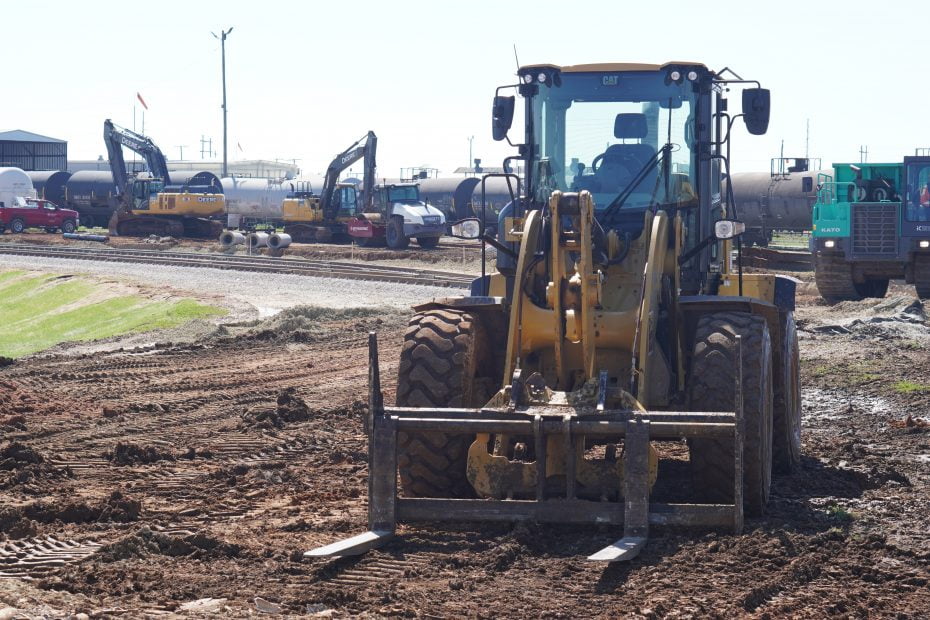Railroad emergencies can come in all shapes and sizes. Sometimes a train might get stuck on the tracks, while other times there might be an issue with the locomotive. Whatever the case may be, it’s important to have a plan in place for addressing these types of emergencies.
That’s where companies like American Track come in. We are experts in railroad engineering, and we can help you resolve any emergency that might occur on your railroad line. In this article, we’ll be examining four of the most common that we’ve seen.
1. Train Stuck on the Tracks
On some occasions, the public might think the train is stuck when it’s really just one train waiting on another to pass, or it’s waiting to enter the railroad yard. However, the train may be stuck due to minor mechanical issues or problems with the track itself.
A railroad contractor like American Track can be very helpful when a train is stuck on the tracks due to track issues. We have the experience and equipment to quickly repair the damage and get the train moving again.
In addition, we can inspect tracks to see if there is any damage that needs to be repaired on the horizon. This is important because it can help to prevent future problems from occurring.
2. Mechanical Issues with the Locomotive
Locomotives are machines that are used to move train cars. They are powered by electricity or diesel fuel, and they use a system of gears and axles to turn the wheels. Locomotives are very large and heavy, and they require regular maintenance in order to keep them running smoothly. Some of the most common mechanical issues that can occur with locomotives include:
-The engine may overheat if it is not properly cooled.
-The gears can wear down over time, causing the locomotive to lose power.
-The brakes may wear out, making it difficult to stop.
-The electrical system may develop problems, causing the locomotive to stall.
If any of these issues occur, it is important to have a qualified mechanic inspect the locomotive as soon as possible to prevent further damage.
3. Derailment
When a train derails, it’s usually because something went wrong with the tracks. The most common cause of the derailment is a broken rail.
A rail can break for many reasons, including heat, cold, rust, or poor track maintenance. When a rail breaks, the wheels of the train can’t stay on the track and can come off completely.
This can cause the train to overturn or collide with other trains or objects on the track. Some preventative steps that can be taken to keep derailments from occurring are regular track inspections, timely rail repairs, and good track maintenance. By keeping the tracks in good condition, we can help to prevent accidents and keep trains running safely.
4. Flooding and Other Unsafe Conditions
One of the most hazardous conditions that can affect railroad tracks is severe weather. Heavy rain can cause flooding, which can undermine the tracks. Even strong winds can damage signals and equipment.
Ice and snow can also wreak havoc on the rails, causing them to buckle and break. In extreme conditions, trains may even be forced to stop due to blizzards or avalanches.
Other natural disasters, such as earthquakes and wildfires, can damage railroad tracks and cause emergencies. These events highlight the importance of maintaining a safe and reliable railway system.
Among the many services that American Track offers is an emergency response to any type of unexpected event that damages the tracks. We know these issues cannot wait to be addressed, and we stay ready to respond to our client’s needs 24/7.
If Your Tracks Are Vulnerable, So Are You
No railroad is immune to emergencies, and when they do occur, it’s important to have a partner who can help address the situation. American Track has years of experience in railroad engineering, and we are equipped to handle any emergency that might occur on your railroad line.
In this article, we’ve examined five of the most common types of railroad emergencies. If you find yourself facing one of these situations or anything else out of the ordinary, don’t hesitate to reach out to us for assistance. We’re here to help!


